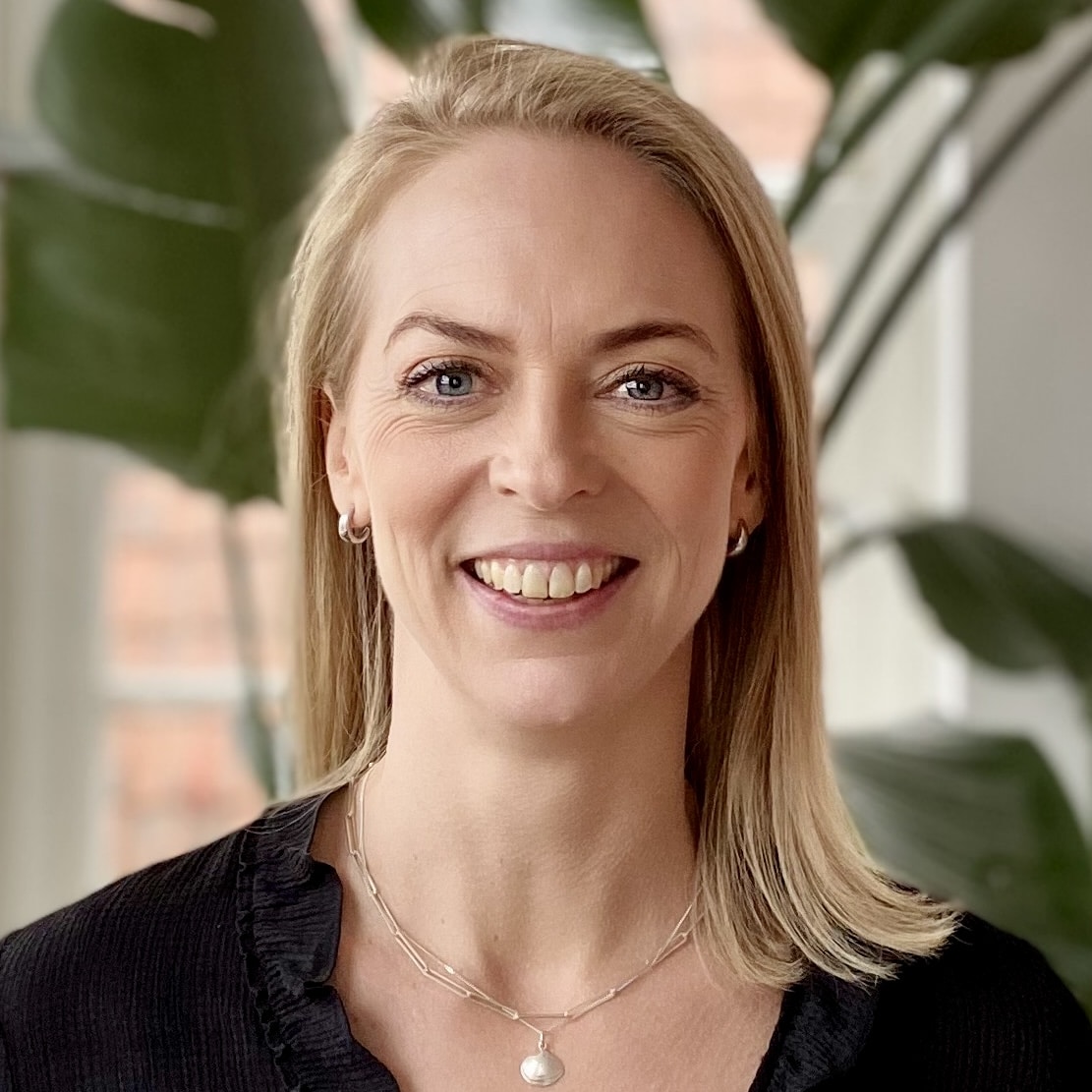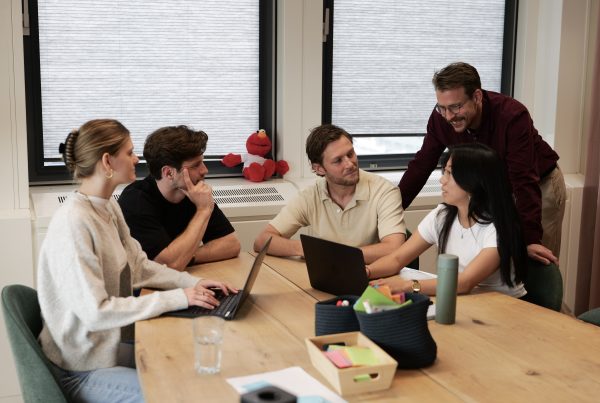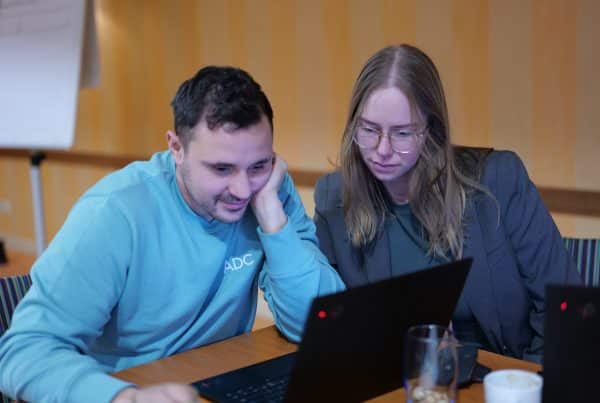
Rianne van der Loo joined Amsterdam Data Collective (ADC) earlier this year as Chief Commercial Officer (CCO). Following a background in econometrics and decades’ worth of professional experience in consulting, sales and operations, Rianne has become an expert at navigating the tech industry. Together we discuss her experience as a woman in tech, the importance of mentorship, and how ADC fosters inclusive leadership.
What first sparked your interest in working in the tech industry?
I like an environment of change. The tech industry is constantly evolving and moving compared to other industries that remain relatively unchanged for years or decades on end. The nature of technology involves innovation and a constant shift of focus. These changes are not only happening within the technology, but also within the organisations that are evolving and growing to match the pace of the technology.
In addition, the tech industry focuses on employee satisfaction and happiness. The industry was at the forefront of building company cultures that both inspire and motivate their employees. Now this is something that has been widely adopted across industries: as an employer, you need to offer your employees incentives beyond a good salary and interesting work. You also need to offer them a place where they feel safe, where they feel at home, and where they can relax. Not only because that is nice, but also because that sparks innovation and collaboration.
Where do you find daily positivity and motivation at work?
It is a bit of a cliché, but it is the people I work with that bring me the most happiness in my job. Ultimately, I spend a lot of time at work, so I want that time to be enjoyable in a positive environment with people I can learn from and share a laugh with. For me, it is important that work and life are not two completely separate things. I like to work with people that I also enjoy spending time with; that is what makes it nice to come into the office every morning.
Apart from that, the content of the work motivates me, particularly to create a positive impact for organisations. I am very results driven in the sense that I like to work in a fast-paced environment where people have a “can-do” mentality. We see an opportunity and try to grab it; we see the results and measure them; and we adapt where needed. I am passionate about being part of a growing collective at ADC where people share my ambitions and growth mindset.
“Scheduling conversations with my mentors forced me to make conscious plans about what I wanted to learn and how I wanted to develop within my career.”
How important is it to have a mentor to grow as a leader?
Throughout my career I have had several mentors, some of whom were also my managers, and some of whom were colleagues who I explicitly asked to mentor me. These relationships hugely impacted my career, especially since I tend to always be in action mode without leaving a lot of time for reflection. Scheduling conversations with my mentors forced me to make conscious plans about what I wanted to learn and how I wanted to develop within my career. It is a valuable opportunity to hear how people with different perspectives would approach a situation, and then reflect on it from your own point of view.
I think it is important to recognise that leadership skills are present in everybody even if they are not in leadership roles. There are opportunities to work on your leadership skills everywhere and in everything you do. For example, look at how you execute your work or practice building relationships with clients. A mentor can help provide direction on what skills you want to develop and how you can experiment with that; however, it is up to you to translate those discussions into actions.
“As long as companies continue to judge their leaders on a rigid set of characteristics, they miss the opportunity to hire people who bring a fresh perspective to their organisations.”
What are the most significant barriers to creating a diverse leadership team?
In general, when people talk about leadership attributes, it is the masculine traits that are highlighted first. These traits include competitiveness, strength, risk-taking, and assertiveness, compared to the typically feminine leadership traits that include collaboration, empathy, intuition, and attention to detail. The latter are still considered “nice to haves” but not requirements when hiring for leadership positions. As long as companies continue to judge their leaders on a rigid set of characteristics, they miss the opportunity to hire people who bring a fresh perspective to their organisations.
In addition, many large companies still hire from within an “old boys” network that does not foster inclusive leadership. Hopefully this is something that will continue to change over time, but for now there is still a common theme of current leaders looking for people who reflect themselves. Instead, companies should take more chances in terms of not only looking at what a candidate has already done, but also what a candidate can bring to the table. For me, it is a no brainer that the tech industry should be a place where we strive for diversity, equity, and inclusion.
How does work-life balance play a role in inclusive leadership?
Currently, there is the ever-present theme of work-life balance, with an emphasis on women taking a greater responsibility over the care-giving tasks at home. This is often brought up as a reason why more women are not in leadership positions in an organisation. As a society, we need to continue to make strides to remove the burden of expecting mainly women to carry these care-giving responsibilities, which in turn only impacts their careers.
On the other hand, companies must strive for more flexibility. Employees need to recharge and gain inspiration by leading fulfilling lives outside of work. There is no formula for a successful leader: they do not all lead the same way or share the same experiences, but what they do share is their ability to inspire others with their vision of the future.
“Working with people who do not always share my perspective challenges me to think creatively and perform in new ways, leading to better solutions and overall results.”
How does ADC foster inclusive leadership?
Fostering a culture of inclusive leadership is very important to ADC. Diversity and inclusion are things that we have always focused on implicitly, but as we continue to grow, we want to focus on them more explicitly by being conscious of balanced hiring. A diverse group of people consistently produces better results. We strive to create a diverse team in terms of gender, age, ethnicity, and the other unlimited factors that define diversity.
When specifically considering gender, it is also important to consider masculine and feminine characteristics, which we have closely looked at within the ADC Management Team. We try to discover our personal leadership attributes, what we can learn from each other, and where we have any blind spots to ensure we have a balanced team. Working with people who do not always share my perspective challenges me to think creatively and perform in new ways, leading to better solutions and overall results.
In addition, we like to promote from within and give our future leaders the resources they need to succeed. There are endless opportunities to take initiative within projects, as well as training sessions to develop both hard and soft skills. We offer a lot of freedom, which empowers people to take ownership. For me, ownership is a foundational quality of successful leaders.
“Oftentimes we are insecure about the things we cannot do, when instead we should be focusing on all the incredible things we can do.”
What advice would you give to someone considering a career in the tech industry?
If you are looking for a career in the tech industry, you must be willing to embrace change; you should enjoy things getting turned upside down. It is an industry for people who like to see the possibilities, are open to growth, and want to take initiative. However, it also demands a lot of resilience and independence: figure out your own path by seeking out opportunities rather than waiting for them to come to you.
Some advice I wish I had received when I was starting out is to trust your purpose within an organisation. Additionally, it is not a requirement to excel in technical skills to find your place in the tech industry. Even though there are many opportunities for data scientists, software developers, and data engineers, there are other roles present, including in sales, marketing, and product management. Find out where you can contribute and have confidence in the fact that you are adding value. Oftentimes we are insecure about the things we cannot do, when instead we should be focusing on all the incredible things we can do.
Let's shape the future
Feel free to continue the discussion by contacting Rianne van der Loo or checking our contact page.

What stage is your organisation in on its data-driven journey?
Discover your data maturity stage. Take our Data Maturity Assessment to find out and gain valuable insights into your organisation’s data practices.







